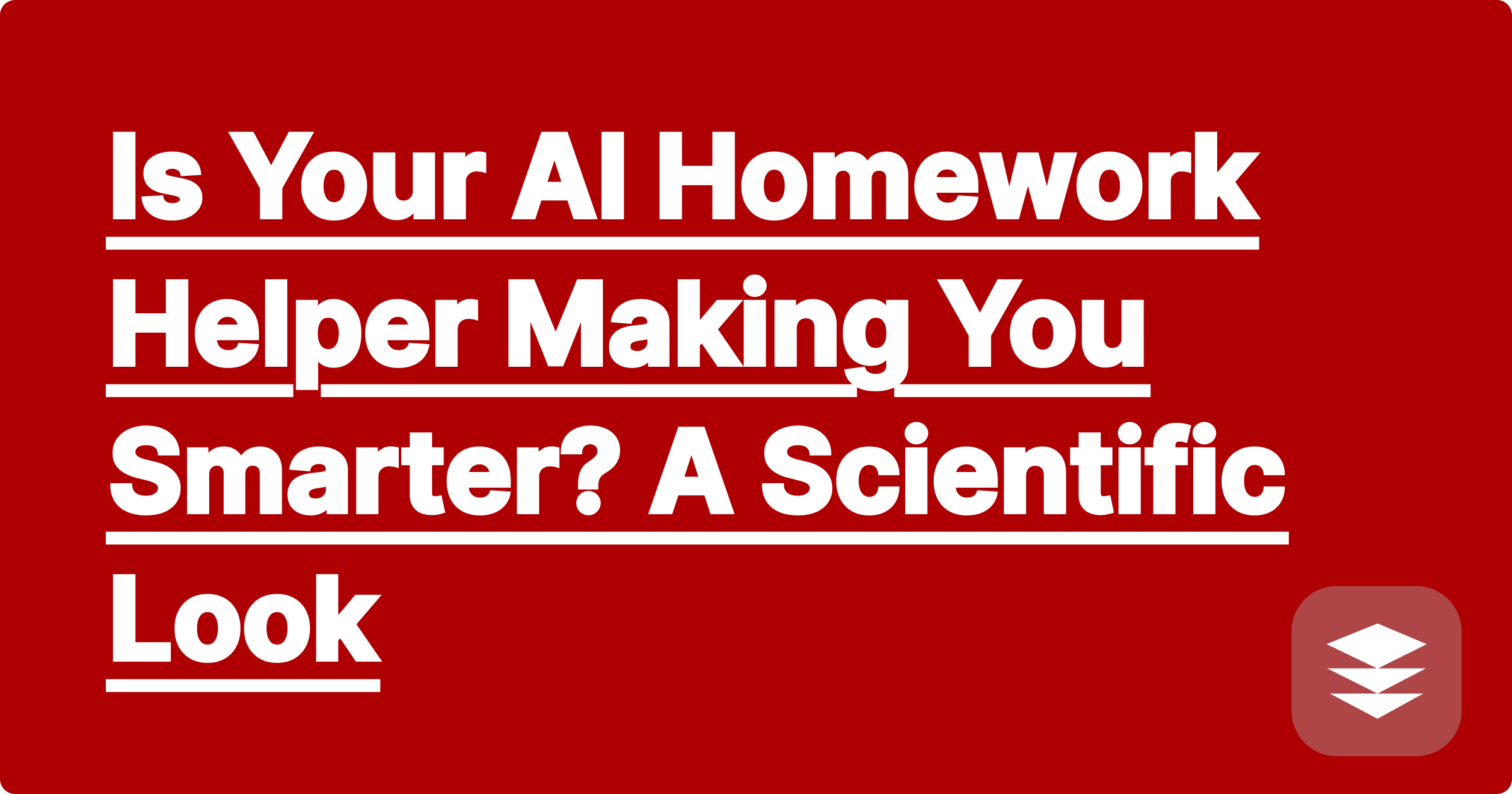
You use an AI homework helper to get unstuck on a tough problem. It feels good. It saves time. But a nagging question often follows: Am I actually learning, or am I just getting good at using a tool?
It's a valid concern. The fear is that by offloading the "hard work" to an AI, we're making our brains lazy. But what does the science say? Does does ai help learning in a way that leads to long-term retention and understanding?
The answer is a resounding yes—if you use it correctly. The right AI study tools don't just provide answers; they align perfectly with proven scientific principles of how our brains learn most effectively. Let's look at the cognitive science behind why a smart AI assistant can be one of the most powerful learning aids ever created.
For decades, cognitive science has shown that "grinding" or "cramming" are incredibly inefficient ways to learn. Our brains aren't designed for brute-force memorization. They are designed to learn through:
A generic AI might just give you an answer, which short-circuits this process. But a purpose-built study tool like the GPAI Suite is specifically designed to enhance it.
Let's break down the cognitive benefits of AI study tools by looking at how they align with these scientific principles.
[Image: A simple diagram showing a brain. On one side, an arrow points to "Passive Review" with a weak connection. On the other, an arrow points to "AI-Generated Quiz (Active Recall)" with a strong, glowing connection. Alt-text: A diagram showing the cognitive benefits of AI study tools through active recall.]
"Effective learning isn't about the raw hours you put in. It's about the quality and intensity of your feedback loops. AI provides the tightest, fastest feedback loop ever created."
Q1: But if the AI is doing the work, how am I learning?
A: You are redefining "the work." The old work was finding, organizing, and verifying information. The new work is understanding, connecting, and applying that information. AI automates the old work to give you more time for the new, more valuable work.
Q2: Can using AI hurt my problem-solving skills?
A: It can if you use it as a crutch to get final answers without effort. But if you use it as a tool—to check work you've already done, to see the steps when you're truly stuck, or to generate practice problems—it will accelerate your skill development by providing a limitless, interactive training ground.
Q3: Is there a "right way" to use AI for studying?
A: Yes. The scientifically-backed method is:
So, does AI help learning? The answer is clear. When used strategically, AI study tools aren't just convenient; they are powerful cognitive enhancers. They reduce the mental friction that slows you down and create the perfect conditions for your brain to do what it does best: build lasting knowledge.
Ready to study based on science, not stress?
[Try the GPAI Suite today. Experience how reducing cognitive load and enabling active recall can transform your learning. Sign up for 100 free credits.]
The Ultimate Study Guide for Your Data Structures and Algorithms Course
AI for Economics: How to Graph Supply, Demand, and Equilibrium
Can AI Write a MATLAB/R Script for Your Data Analysis Task?
My Professor Talks Too Fast: How an AI Notetaker Can Save Your Grade
The 'Lazy' Student's Guide to a 4.0 GPA with AI
How to Use AI to Win Your Next Study Group Session
Is Your AI Homework Helper Making You Smarter? A Scientific Look
The Perfect Gift for a Struggling Student: GPAI Credits Explained
From Procrastination to Preparation: A 3-Day Exam Plan Using AI
Reducing Cognitive Load: How AI Frees Up Brain-Space for Real Learning